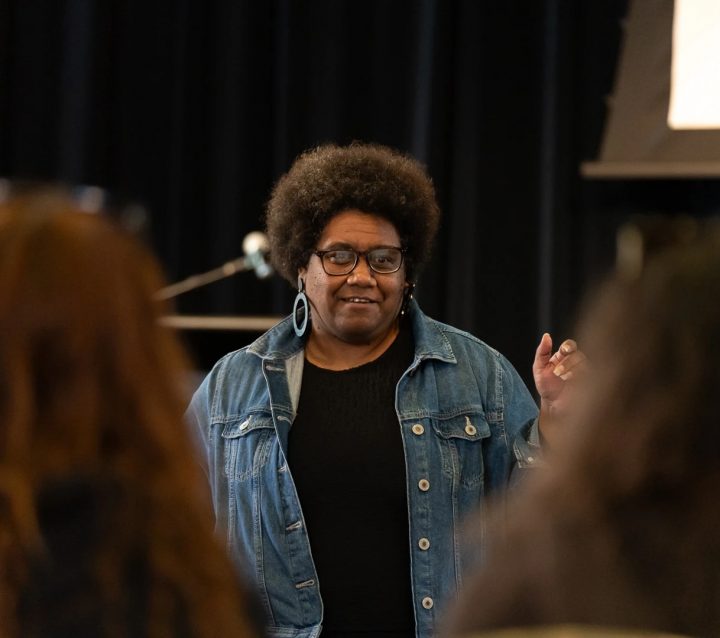Please tell us your story! How did you get to where you are today?
Wadda mooli, my name is Nat, Im a Birri, Kabi Kabi, Byelee and South Sea Islander – I grew up in a little Black Church in Central Queensland, with some of the deadliest theologians and musicians, singer/songwriters. I was really blessed to be surrounded by such musical talent in my family and in the community that I was raised in. I don’t play an instrument or sing tho, I sound really good in the shower or with a backing track pumped up! And I love to worship aye, I love the Lord and I’m grateful for that upbringing in the Church, it really shaped me and how I see the world and all the beautiful people in it!
I have always worked in and for the Community, as long as I remember, so to advocate, elevate and do the work for Mob, has always been central to my life. I worked for the Federal Government, and NGOs all in, Aboriginal and Torres Strait Islander departments. I’ve had a pretty niche experience with getting to know the Industry and the spaces that are here in Queensland especially. My short-lived career, so far, has all stemmed from my Community Engagement experience and total love for artists, music and the Industry.
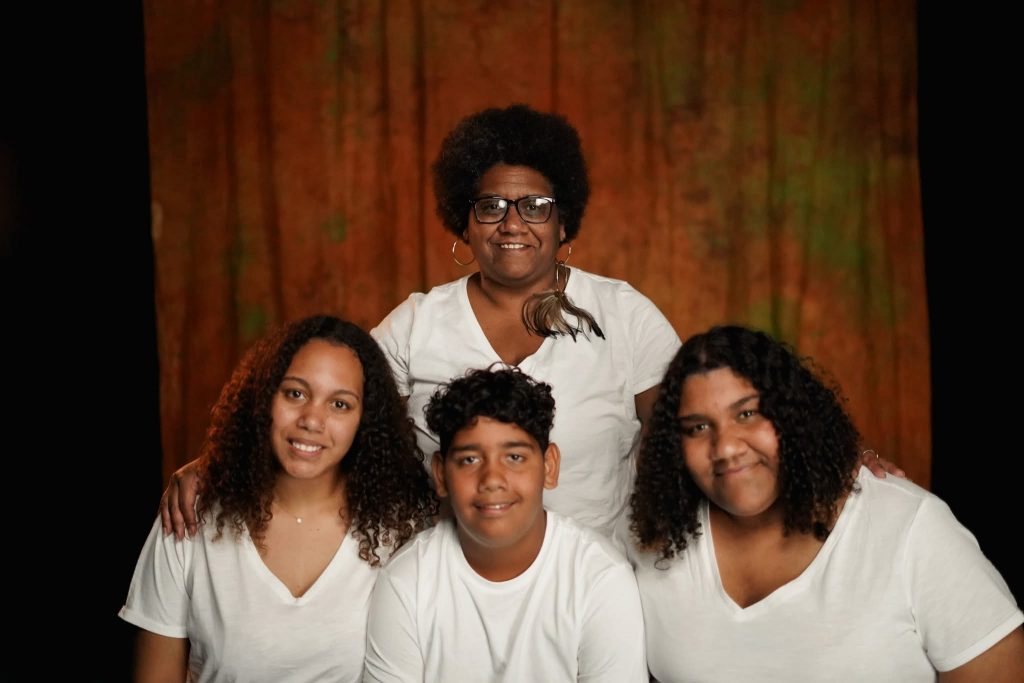
Why did you want to get into the music industry?
I had a dream hidden in my heart from when I was 15 to have my own Christian music record label, I really grew up listening to some of the best Christian R&B and Hip-Hop out of the States and was also into the “latest” music when I was growing up, albeit hidden from my parents at some times.
I have 3 siblings, but my eldest 2 really shaped that flavour of music – my big brother, produced his own stuff back in the 90s, making beats, I grew up watching him with a boom-box, he had cassette tapes of NWA, my Sister had the first cassette of Mariah Carey Christmas edition, hahah, I remember the shoe box of cassettes they both collected. My Sister also had the best collection of VHS, mixtapes, recorded herself. ahah This combined with the music in the Church, I was easily won over and fell in love.
“My legacy of serving others. That people would know and exercise the importance of serving, and working solidly for their communities, whole-heartedly and authentically.”
Do you feel that higher education is a necessary step to enter the music industry?
Maybe, for those that want to know everything and anything, before stepping in, but honestly, I have learnt the most by yarning with people and observing the landscape. I’m still doing all of this!
Let’s talk about the highs vs the lows of your career. What is your greatest achievement?
I came into the Industry from a career in Government, so it was a huge shift for me – I’ve only been working in the Industry for 3 years, but those connections that I made before branching out and wanting my own label, started probably 15years ago.
The highs have been watching the Blak Hip-Hop scene evolve over this time, I remember flying to Sydney to go to the Opera House for Bad Apples first showcase there, so much fun! I was always flying around the country-side to be in the crowd to support the artists that I loved, it’s been a highlight to watch artists grow!
I remember waiting until 12pm to listen to JK-47s, “Made for This” on my phone on my back verandah in Goondiwindi. As soon as I heard it, I was struck! I then drove 4 hours to watch JKs first tour for the album, I went by myself and was again, flawed, I was like a proud Sister, just so happy to see and hear this talent – and after years of watching JKs growth and through the connections and knowledge I’ve acquired, I have the privilege of being on his team now – That’s the highlight.
The lows? The timeline in which I thought I would be with the label, it’s been a slow, slog, but you know, what’s happened over the last few years, outweighs hey, good things take time …
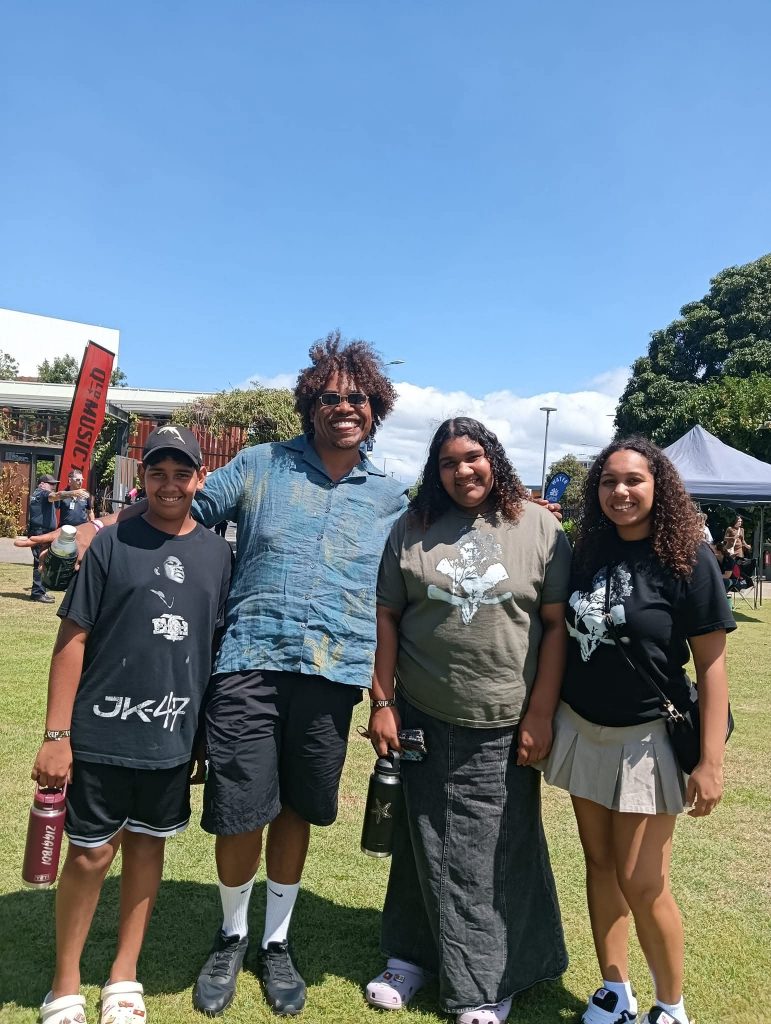
Who has been your biggest champion in your career?
My Babies! They’re so patient and loving and enjoy the music as much as me. My sister girls who may not know exactly “what I do,” but they still, listen to me, shower me with encouragement and love – biggest love to Sono, Kerry and Chelsea, Alecia and Gee + their partners and babies, I’m so blessed to have a tight circle of good people.
What is the best piece of life advice you’ve ever received?
Give it to God and He’ll do the rest.
“I have learnt the most by yarning with people and observing the landscape. I’m still doing all of this!”
What is your big picture career goal?
Be able to test my theories on the intersection of Health and Music/Creativity, Touring our Songlines, Research our Aboriginal, Torres Strait and Australian South Sea Islander history with gospel music. Have a role in 2032 Olympics within the Arts, have a Faith-based record label, linking with Local and International faith-based Industry folk.
Be happy with whatever the outcome too!
“to test my theories on the intersection of Health and Music/Creativity, Touring our Songlines, Research our Aboriginal, Torres Strait and Australian South Sea Islander history with gospel music.”
Who are your role models in the industry be they local or International?
Locally, I listen to my Sis Sue Ray, she’s a wealth of knowledge on the Industry and we can yarn for a long time! Uncle Kutcha Edwards, we always run into each other and can also yarn, about everything and anything!
Internationally, I loovveee Cece Winans. I have loved watching her career and her ability to tap into the Lord and write these beautiful songs.
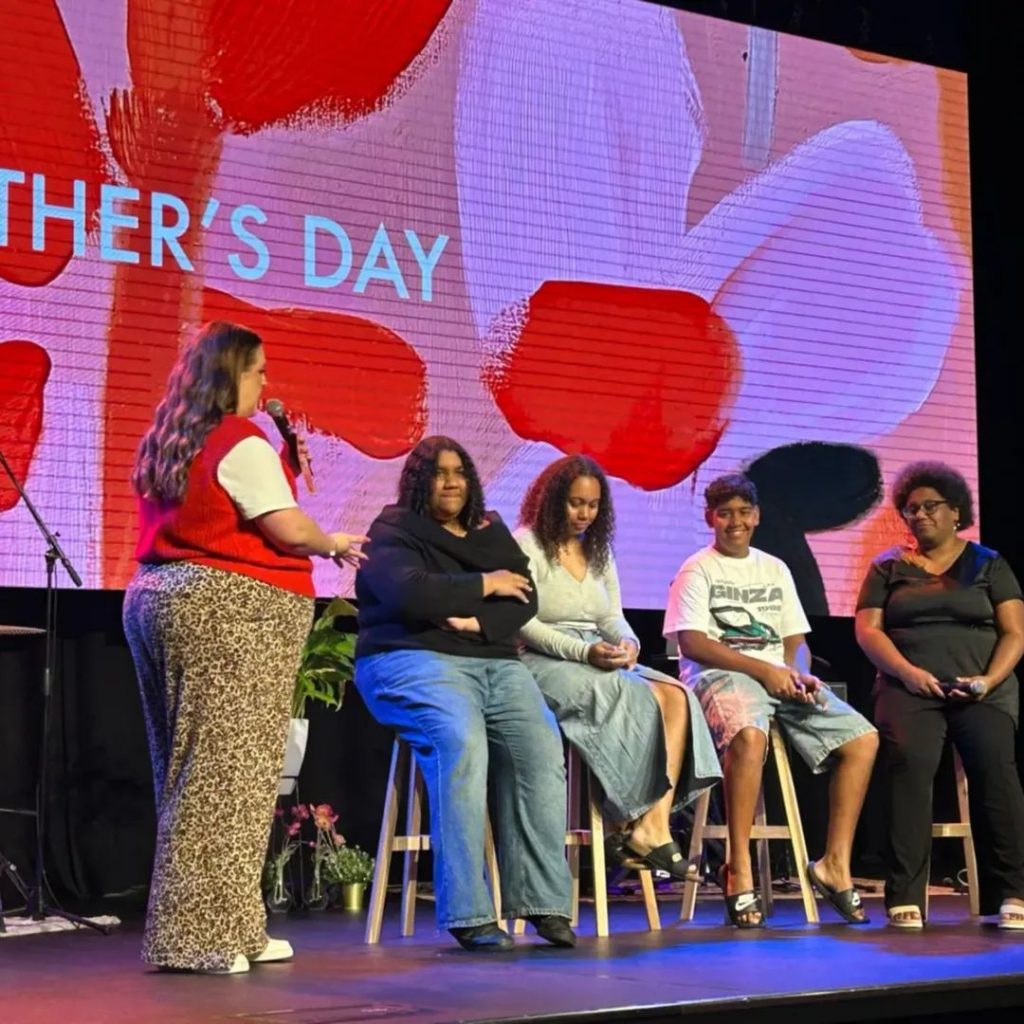
Who are your top 3 ‘artists to watch’? Can I pick 5?
There’s a young rapper from Boggabilla – Kobi Dunks,
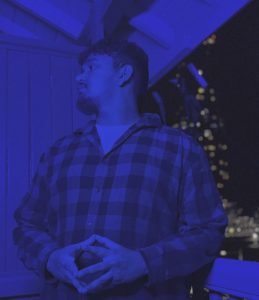
a dope Sis Siala
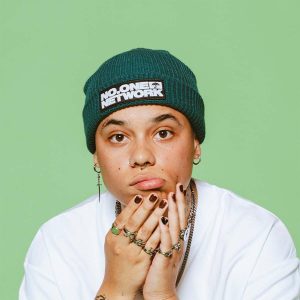
mad MC Yung Maynie
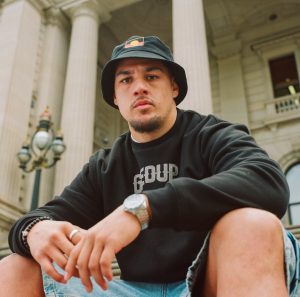
and 2 Artists on the FN Focus Roster, Taija
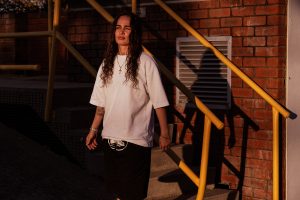
and the Lad Inkabee. Excited for all 5!
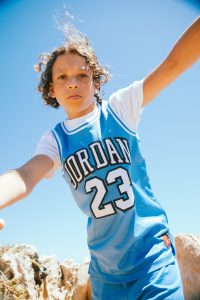
How has your identity as a First Nations woman influenced the way you move through and reshape the music industry?
I believe in serving our Mob, serving our Elders – that was drilled into me at a very young age, make the cuppa, clean the floors, watch the babies, our way of being aye, so that’s how I move, not just in the Industry, but in daily-living. Thinking outside the box (we are/were always intuitive People) to elevate our voices, either through research, turning-up, and trying to be gracious all the while.
Music has always been a vessel for storytelling in First Nations Culture. How does that perspective guide your approach to supporting artists today?
To do just that, tell your story, tell your yarn, in your language if you can, share your talents, all of them, not just the music, but the art, the dance if you still have them, and practice these daily. It’s healthy. When we are exercising our whole being, our bodies and our communities will thank us later.
“There’s been progress, off-shoot projects, and Blak focus spaces, but it is still being programmed and or controlled through a white lens, and not having the right voices in places can undo the work that Elders and our Old People have worked for.”
Were there moments in your career where you felt you had to push against barriers and how did those experiences shape your leadership style?
I feel like I have a mix of Leadership styles, Servant & Coaching.
Because absolutely, there’s been tears, and there’s been doubts, but it all depends on how bad you want it aye. Keep on pushing. People may want to lock you out of doors, not take the call, question your ability, question your motive, but if your morals are straight and your understanding of the community you’re serving is deserving of you fighting for them, then stand tall, shoulders back.
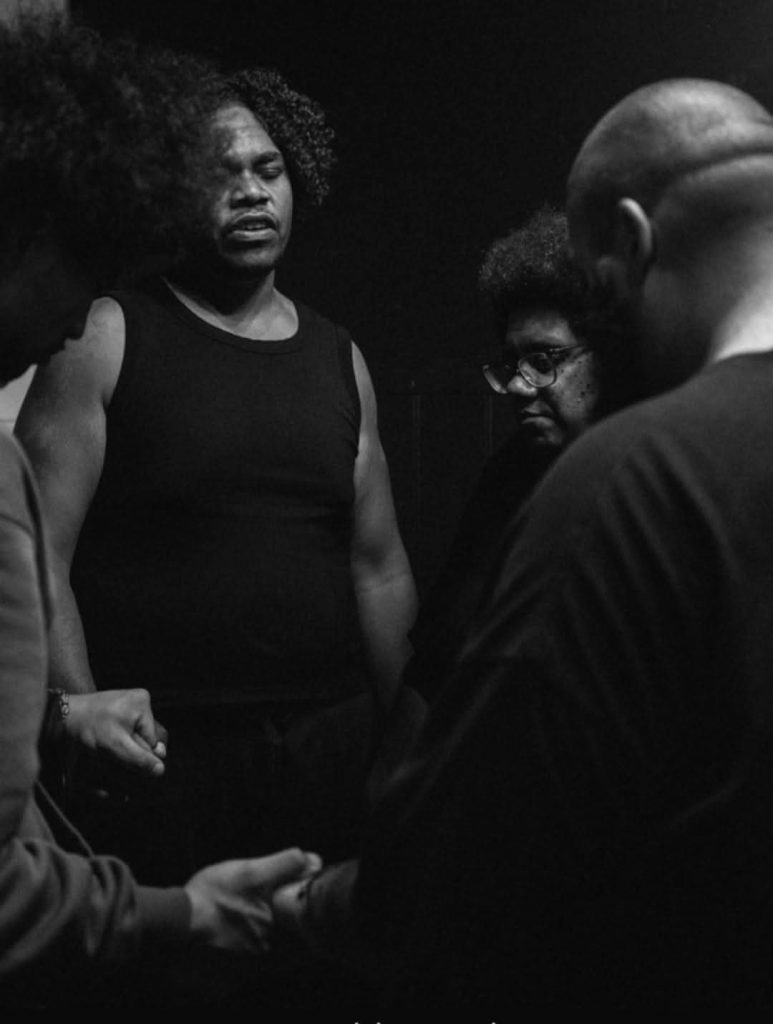
You’ve worn many hats in the industry. Including, both working in touring & managing artists. For those who aren’t of First Nation heritage, but who manage or tour First Nation artists. – What are some important considerations that should always be taken into account when representing or booking First Nations artists?
I think it’s the same sentiment as before – know your Local, know the Communities that you are going into, or where the Artists that you’re representing are from, who they connect with, we are kin people, so it can be even as far as getting to know artists families and indulging yourself on Black politics and Black spaces, really being a part of your own community too – attend community events, once you know someone and where they’re from, black, white or brindle, the relationship can be very healthy and respectful and successful.
The industry often talks about “diversity and inclusion.” How can the industry ensure authentic diversity & inclusion without unintentionally tokenising?
Get to know your local! Your local community, your Elders and listen to them. There are Black Community Leaders that sit within our spaces that don’t necessarily have a title, but they know, who’s who, what’s what. Get to know them, and contribute to understanding our ways of knowing, being, doing.
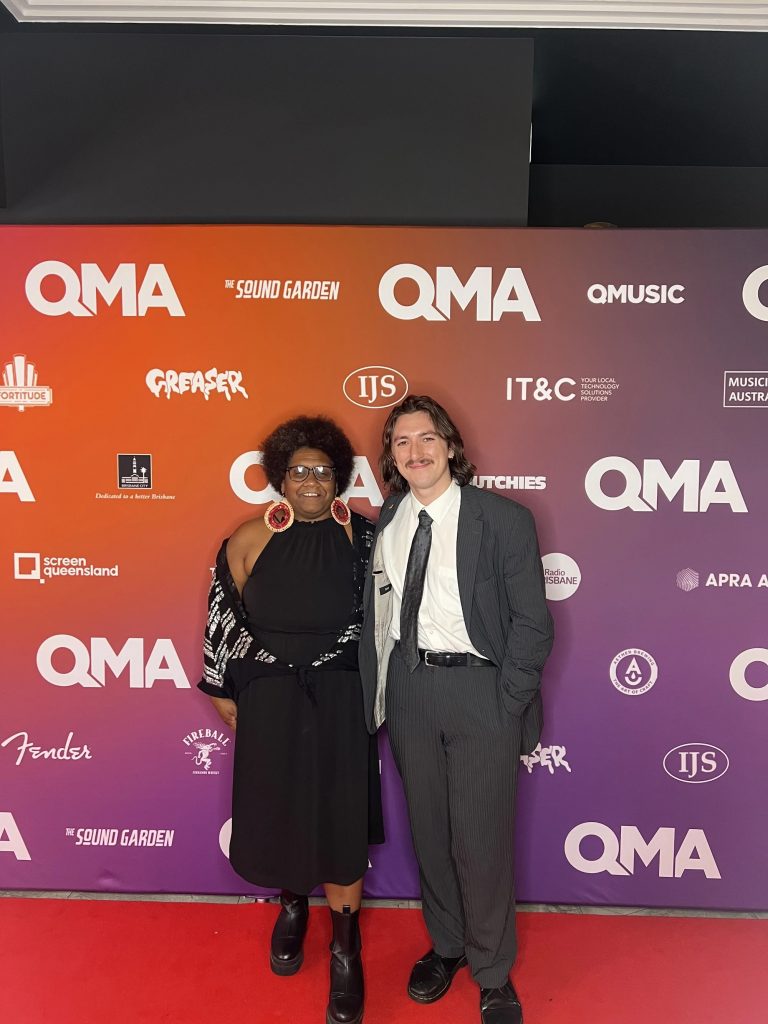
You’ve been vocal about the importance of creating pathways for underrepresented voices. What examples of progress have you seen, and where is the work still falling short?
There’s been progress, off-shoot projects, and Blak focus spaces, but it is still being programmed and or controlled through a white lens, and not having the right voices in places can undo the work that Elders and our Old People have worked for.
This one is across the Arts, its funding and time. My colleagues have long conversations about this, but it is definitely where it’s falling short.
What role do you think publishers and labels should play in not just breaking artists commercially, but nurturing long-term cultural impact?
Holistically caring and working for artists, all facets of their life being taken into consideration and not pushing, or bullying for the next hit.
“There are Black Community Leaders that sit within our spaces that don’t necessarily have a title, but they know, who’s who, what’s what. Get to know them, and contribute to understanding our ways of knowing, being, doing.”
What kind of industry do you hope the next generation of First Nations artists will inherit?
One that it is ready for them! I think this next generation are going to be less reliant on the things that the Industry can offer to help market, and distribute their craft, there’s a sense of no holding back with the new Mob – bring it on.
What would you tell your younger self if you could tell them anything?
Start watering the seed as soon as it’s planted, the dream, the healing, the love you feel for yourself and others, don’t abuse your body and others, oh man, so much! These are key for me though.
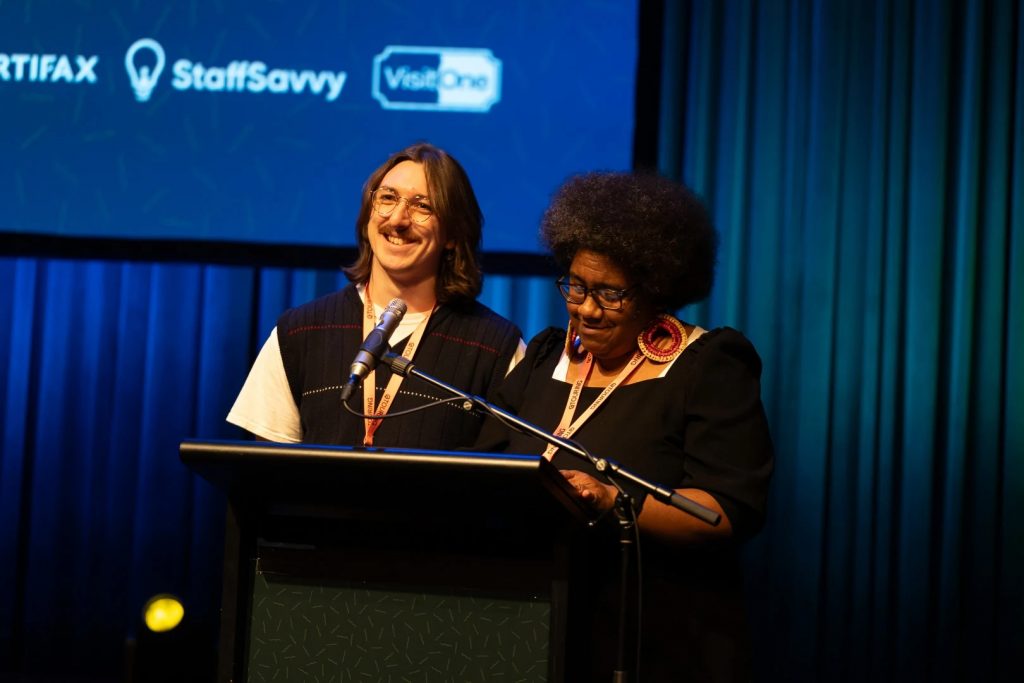
What’s the legacy you want your work to leave, both within the industry and the communities you represent?
My legacy of serving others. That people would know and exercise the importance of serving, and working solidly for their communities, whole-heartedly and authentically.
“People may want to lock you out of doors, not take the call, question your ability, question your motive, but if your morals are straight and your understanding of the community you’re serving is deserving of you fighting for them, then stand tall, shoulders back.”
What’s your go-to Karaoke song?
I’m more likely to cheer you on rather than get up – but maybe some Aunty Aretha -R.E.S.P.E.C.T.
